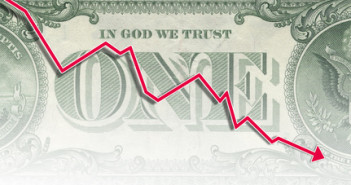During December, comments from politicians, government officials and their aides will continue to impact currencies. So far, the movement has been related to the risk factor: optimism triggers risk appetite and a weaker dollar, while pessimism triggers risk aversion and dollar buying.
However, the impact changes from currency to currency:
For some more background and detailed scenarios, see the 4 scenarios for the fiscal cliff.
* This article is part of the December monthly forex report. You can download the full report by joining the newsletter in the form below.
- CAD: The Canadian dollar is more vulnerable, as Canada depends on US demand and its economy is showing signs of weakness.
- JPY: The yen is impacted, but in the opposite manner: as the yen is still a safe haven currency, pessimism helps the yen against the dollar, while optimism boosts USD/JPY.
- EUR: As the situation in Europe remains problematic, also the euro is sensitive. The impact is stronger when it goes with the trend: optimism in the US together with optimism in Europe has a greater positive impact on EUR/USD, while bad news from the US coupled with worries regarding Greece have a greater negative impact on the pair. Other combinations have a weaker impact.
- GBP: To a lesser extent than the euro, the pound also needs US strength. Also here, the impact depends on the trend.
- NZD: The kiwi is more vulnerable to US news than the Aussie, but in general, Asia Pacific news has more impact.
- AUD: The Australian dollar moves more by news from Asia Pacific. So, the Aussie is less impacted by less important politicians and more from Chinese statements. However, strong comments from Obama or Boehner still move the A$.
Further reading: 4 scenarios for the fiscal cliff



